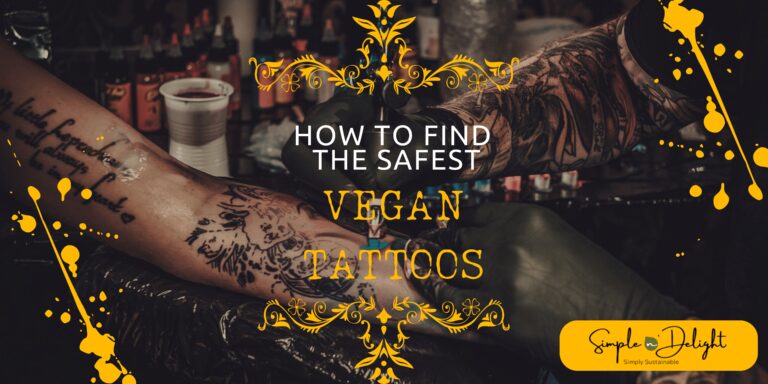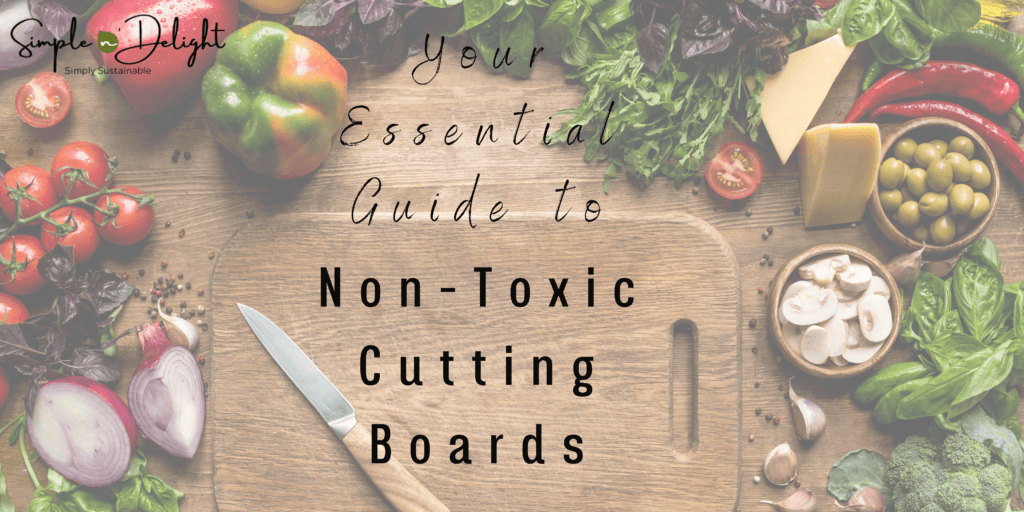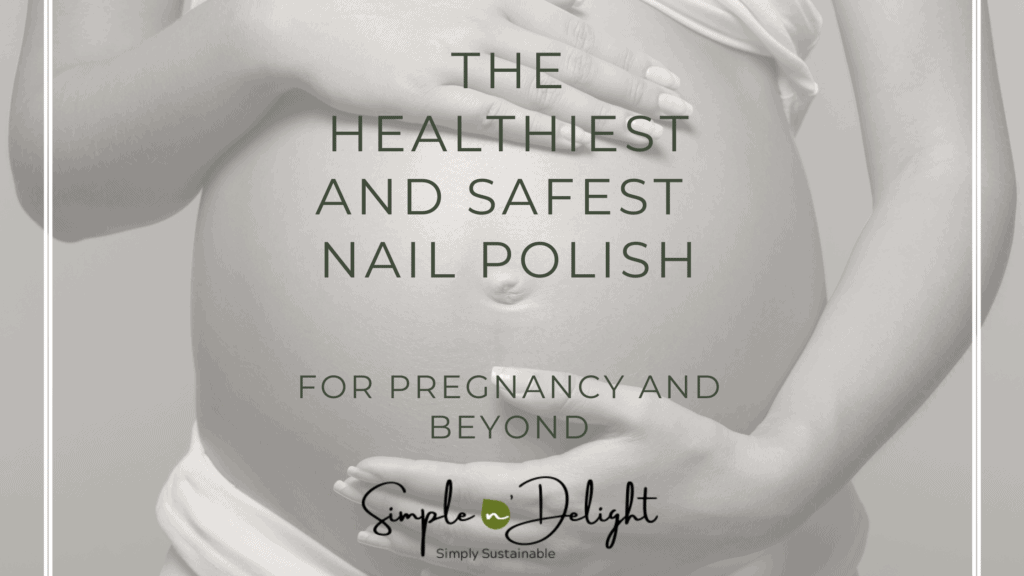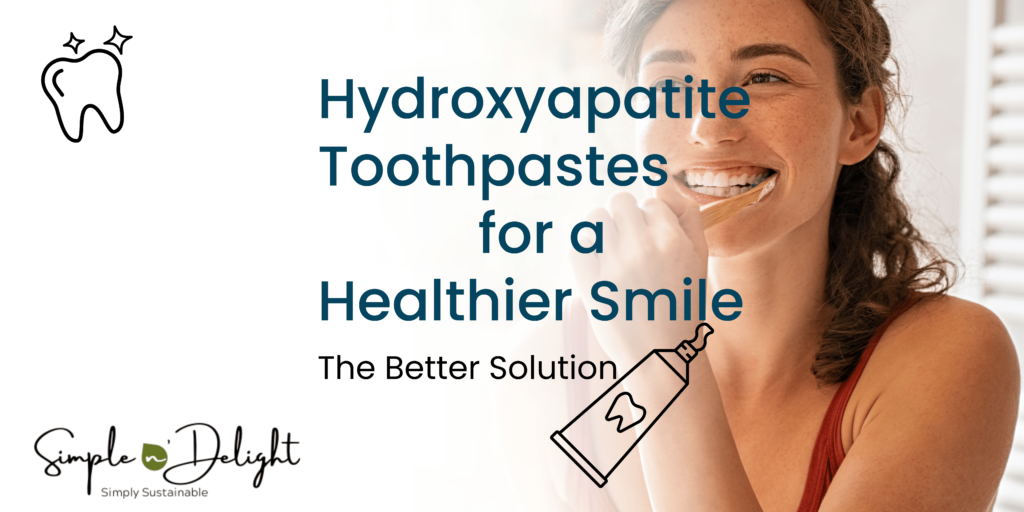This post may contain affiliate links, which means that I may earn a small commission if you make a purchase using these links. This is of no cost to you and does not skew our recommendations. As an Amazon Associate, I earn from qualifying purchases.
Are Vegan Tattoos the Compassionate Choice?
In a world increasingly driven by ethical choices, veganism is making its mark, touching every aspect of our lives. But have you ever considered the ethical implications of your tattoos? Traditional tattoo inks, stencils, and aftercare products can hide surprising secrets.
In this guide, we’ll unveil the art of vegan tattoos. What are they, and why might they matter to you? We’ll explore the surprising truths behind regular tattoos, the safety of tattoo ink, and the benefits of choosing ink that echoes your values. Whether you’re a dedicated vegan or simply curious about cruelty-free choices, this journey into the world of vegan ink will leave you inspired.
Discover the ink that resonates with your principles, respects all living beings, and provides skin-deep satisfaction.
Ready to make your ink a statement of compassion? Let’s begin.
Vegan Tattoos: What Are They?

Let’s kick off with a simple definition, as there are many people out there who haven’t yet heard about vegan tattoos, and the very concept of a “vegan-friendly tattoo” is still quite a new idea.
In simple terms, a vegan tattoo is one that is completed without the use of any animal products whatsoever. In other words, vegan tattoos are made using plant-based, eco-friendly inks without the likes of animal glycerin or bone char. They’re perfectly safe for vegans to get, having been designed with vegans and animal lovers in mind.
Are regular tattoos vegan? Unfortunately, not. A traditional or standard tattoo will usually involve some sort of animal product being used along the way, like lanolin stencils (lanolin comes from sheep’s wool) or glycerin in the ink (glycerin is typically derived from animal fat).
Can Vegans Get Tattoos?
Thanks to the recent rise in vegan tattoos, it’s now much easier and perfectly possible for a vegan to get inked. However, in the past, vegans have historically found it quite difficult to find a tattoo studio or artist to provide the service they need. Since traditional inks often contain animal ingredients, they’re simply not an option for the average vegan.
Tattoo Inks: Are Tattoo Inks Healthy?
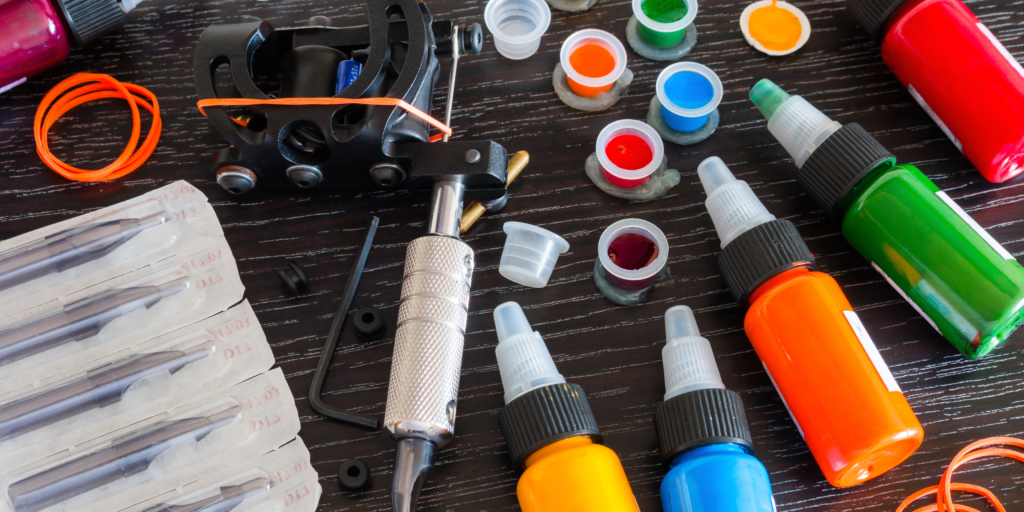
As the news about vegan ink has started to spread, many people have started asking deeper questions about tattoo inks. Like is tattoo ink toxic? Or what is the safest tattoo ink? In general, tattoo ink is not toxic, and that applies to both vegan ink and regular ink, and they’re both considered safe to use. However, there are some key differences between the two.
Regular Ink
Regular or traditional tattoo ink typically contains a range of animal by-products or ingredients derived from animals. This may include the likes of bone char (made from crushed and heated cow bones) and animal glycerin (sourced from the fat of farm animals). These ingredients serve various purposes in the final ink mixture, such as stabilizing it or adding to its color.
Vegan Ink
Vegan ink is made entirely with organic, plant-based, or otherwise vegan-friendly alternatives to the typical animal ingredients in regular ink. For instance, instead of bone char, an organic pigment is used, and instead of animal glycerin, a plant glycerin substitute will be used, producing the same effect without the need for any animal products.
Vegan Tattoos: Regular Ink vs Vegan Ink
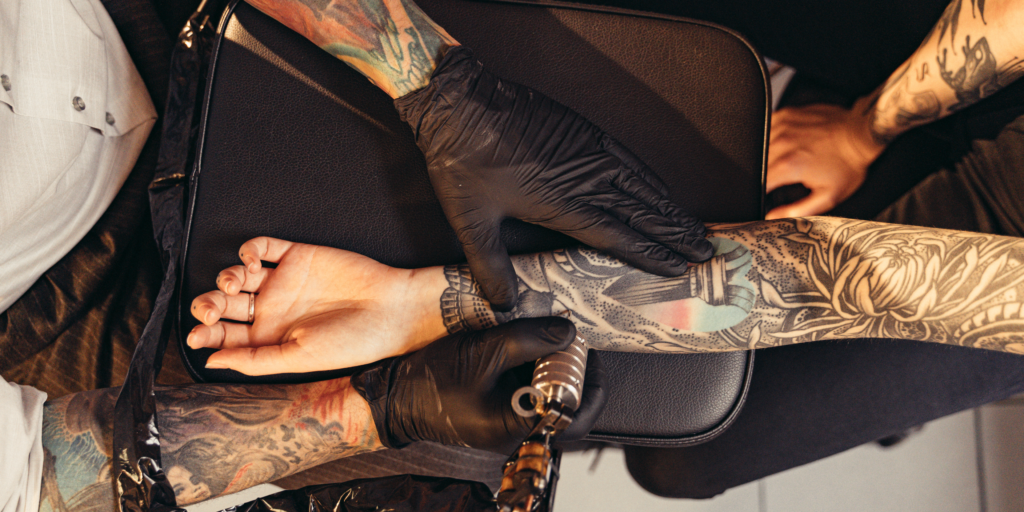
Clearly, the big difference between regular ink and vegan ink is in their ingredients. Regular ink can contain multiple animal products, while vegan ink doesn’t contain any. But, in terms of their actual usage and effects, both inks are more or less the same. You can get an equally good quality, detailed, colorful tattoo with both ink types.
Is Eco-Friendly Tattoo Ink Safer?
There’s an ongoing debate about the possible safety benefits of vegan or eco-friendly ink. Some experts argue that the ingredients used in vegan ink are better for sensitive skin and less likely to trigger negative reactions, like an allergic reaction or adverse skin response after the tattoo has been finished.
What Is the Safest Tattoo for Sensitive Skin?
For sensitive skin, it may be best to opt for a vegan or eco-friendly tattoo. There hasn’t been too much research into the subject yet, and we can’t draw any definitive conclusions, but many experts feel that vegan tattoo ink is best for sensitive skin, as it contains fewer ingredients which could trigger sensitive reactions.
What Are the Best Non-toxic Temporary Tattoos? Are They Vegan?
For temporary tattoos, too, it’s best to opt for vegan options, where available. Even for those who don’t follow vegan lifestyles, vegan temporary tattoos tend to be safer and better to use, with less risk of adverse skin reactions.
Vegan-Friendly Studios in the USA
If you want a vegan tattoo, it’s important to note that you’ll need to look around and find a suitable studio. Many studios still don’t offer vegan inks and services, but a lot of big cities are starting to see new vegan-friendly studios opening up. It’s quite easy to find an LA or Las Vegas tattoo shop offering vegan inks, for example. Those in rural areas may find it a little trickier.
Vegan Tattoos: Aftercare, Nurturing Your Art Ethically
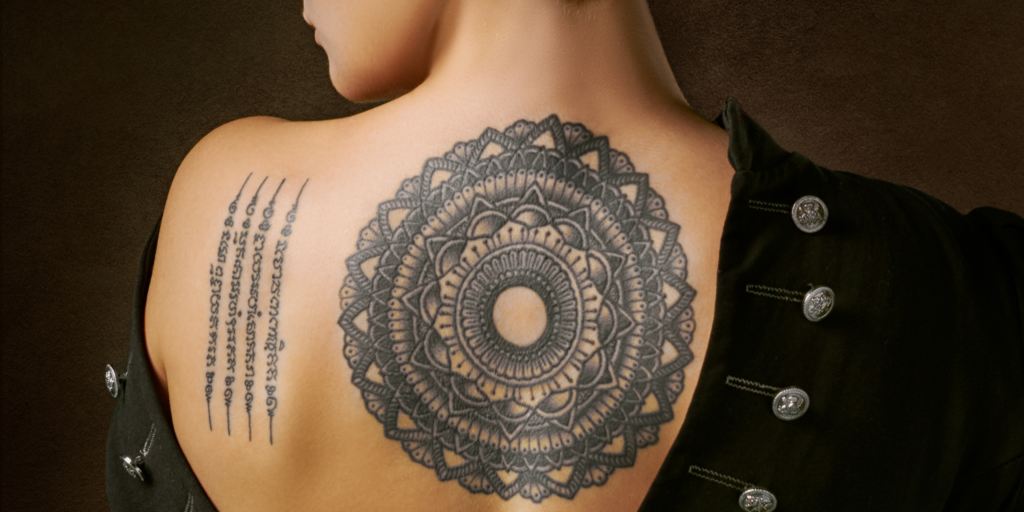
You’ve just gotten your stunning vegan tattoo, and now it’s time to ensure it heals beautifully. Just as you’ve made a conscious choice with your ink, your aftercare should align with your ethical values. Many traditional tattoo aftercare products contain animal-derived ingredients or are tested on animals, but there are plenty of vegan-friendly alternatives to consider:
Vegan Tattoos Healing Balms: Look for balms made with plant-based ingredients like shea butter, coconut oil, or cocoa butter. These natural emollients help soothe and moisturize your healing tattoo.
Cruelty-Free Lotions: Opt for cruelty-free, vegan lotions that do not contain animal-derived ingredients like lanolin or beeswax. These lotions keep your skin hydrated without compromising your ethical choices.
Plant-Based Ointments: Aloe vera and calendula ointments are excellent vegan options for soothing irritated or inflamed skin. They promote healing and reduce redness without harming animals.
Fragrance-Free Options: Avoid aftercare products with added fragrances, as they can irritate sensitive skin. Instead, choose fragrance-free products that are gentle and suitable for all skin types.
Hypoallergenic Soaps: Keep your tattoo clean with a gentle, hypoallergenic, and vegan soap. Look for options that are free from harsh chemicals and animal-derived ingredients.
Vegan Sunscreen: Protect your new tattoo from fading by applying vegan sunscreen with a high SPF. This not only preserves the vibrancy of your ink but also shields your skin from harmful UV rays.
Remember, the healing process is crucial for the longevity and vibrancy of your tattoo. By choosing vegan aftercare products, you not only ensure the best care for your new ink but also contribute to a more compassionate world.
Conclusion

Overall, vegan tattoos aren’t just beneficial for vegans. They may also offer unique skin healing and protective properties that traditional inks don’t provide. So, whether you’re vegan or not, a vegan tattoo could be the best way to get inked, and it’s definitely worth considering if you’re worried about the risks of animal products and chemicals in tattoo inks and aftercare.
Your ink speaks volumes about your values. It’s more than art; it’s a statement of compassion for animals, the environment, and yourself. So, when you think about getting inked, consider the lasting impact of choosing vegan-friendly alternatives.
Every tattoo can be a symbol of a kinder world!

